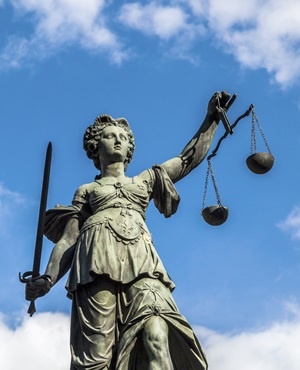Give power to the people
2017-02-12 06:06
After a hectic 22 years’ rule by a democratically elected ANC government, South Africa’s post-1994 dispensation has proved too much to bear for many citizens.
There was a time when the world regarded our country as a beacon of hope. This occurred after we succeeded in narrowly avoiding a racially charged civil war in the 1994 build-up to our new democracy.
When elections and the transfer of power proved to be a relatively peaceful process, global observers called South Africa “the greatest racial miracle the world as ever seen”.
Fast-forward to today, and South Africa has been pegged as a country to avoid. One reason is the high crime rate which continues to plague our nation.
This continuing curse is defined by violence in its many and varied forms.
For example, towards the end of 2003, South Africa experienced its first wave of service-delivery protests.
At the time of the outbreak, many dismissed it as temporary, and part and parcel of the country’s transition from apartheid to democracy. It would not be long before matters returned to normal, they said.
We all know how wrong they were.
The flames of violent protests have been vigorously fanned, culminating in the Marikana massacre of August 2012 – described online as “the single most lethal use of force by South African security forces against civilians since 1960”.
Earlier, in 2006, the trade union movement experienced its darkest hour post democracy when a series of killings – the brutal byproduct of trade union rivalry – brought the country to the brink of instability.
And recently, the higher education sector has been brought to a standstill by students calling for economic transformation and a change in the education system.
Having seen what has happened since democracy, it is safe to assume that the country cannot depend on leaders who were involved in bringing about the new dispensation to turn things around and instil order.
Where did it all go wrong for South Africa? How did we get here? Let us go back to the early 1990s, during the series of negotiations for a new South Africa. These took place under the banner of the Convention for a Democratic SA (Codesa).
A major oversight then was that not all communities, organisations and other South African stakeholders were present at those talks.
The political organisations which took part in the discussions were more concerned about their own agendas than what was best for the country.
If they had placed South Africa’s interests first, we would not still be calling for an electoral system favouring the masses, who remain as voiceless and marginalised as they were during Codesa.
The political organisations which dominated the Codesa talks engineered a party-based democracy.
It looked good on paper, but these days has come to refer to a governing party which calls the shots. Its cadres have to toe the party line or risk being punished for disloyalty.
Codesa proved to be flawed as the electorate have now become mere voters during election time. At other times, they have no say in how and what the party they vote for does, including how they elect their president.
Accountability and transparency from party leaders and elected representatives are nonexistent.
What’s more disturbing is that the opposition parties do not appear to bother much about the masses either.
If the country has a credible civil society, it must campaign for presidential electoral reform to restore power to the people – and do so now.
Mgudlwa is a journalist and writer of the bestselling children’s book Kiddies World


No comments:
Post a Comment